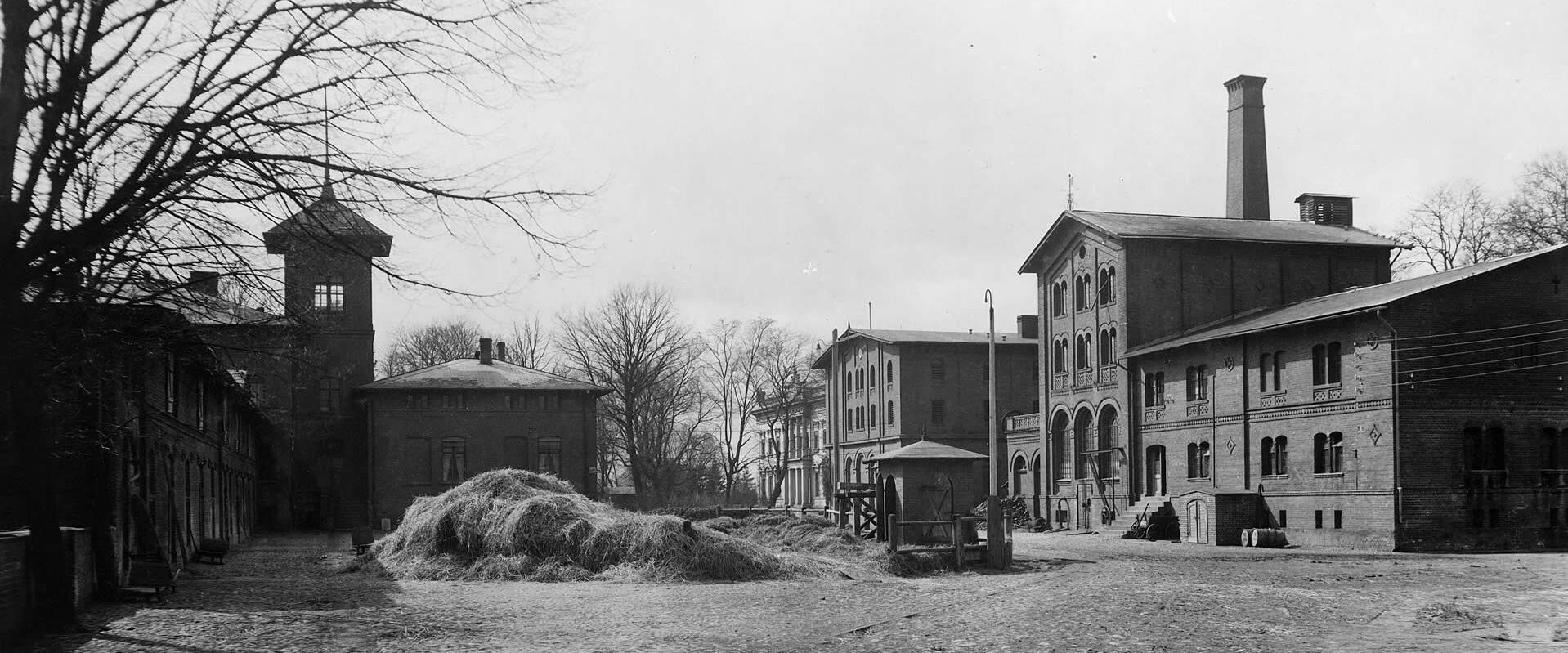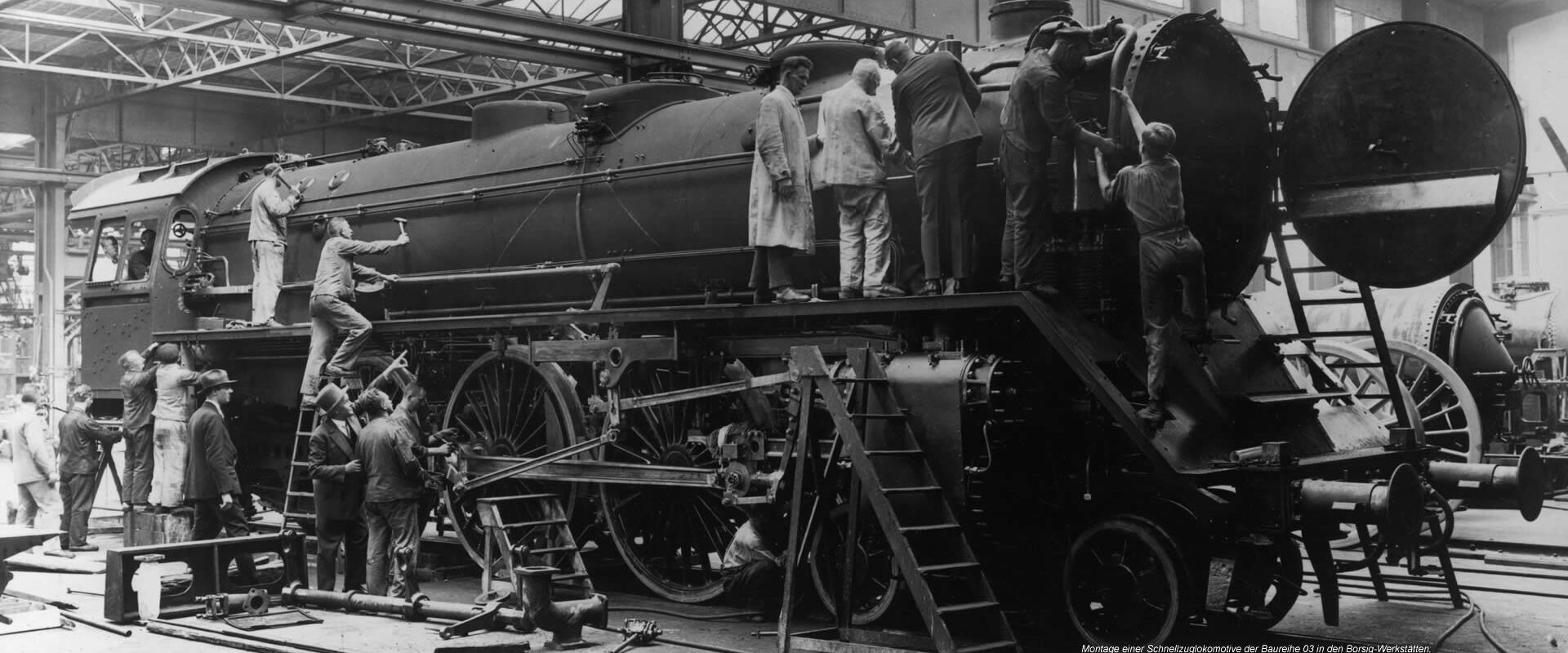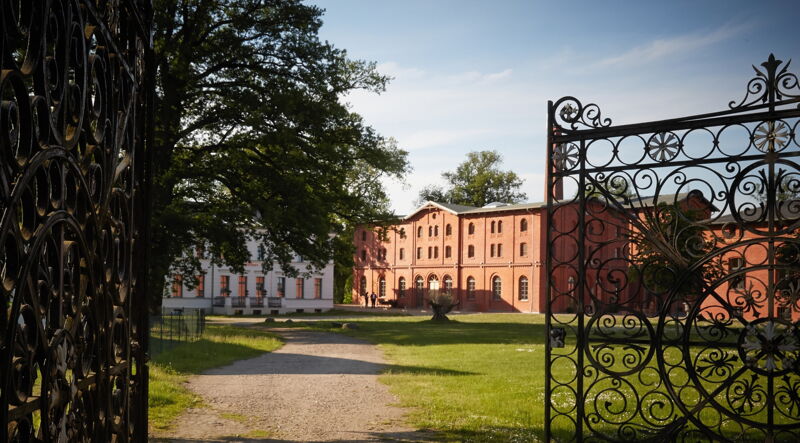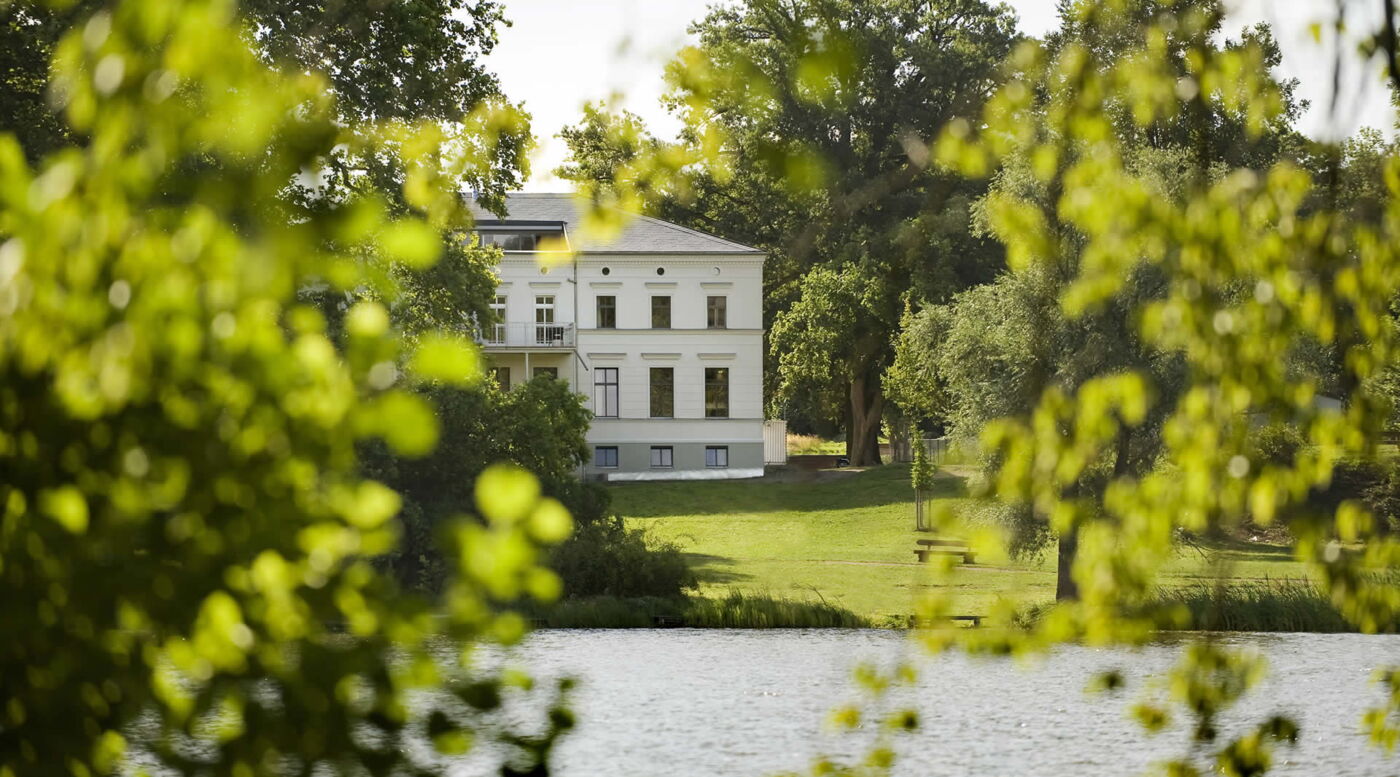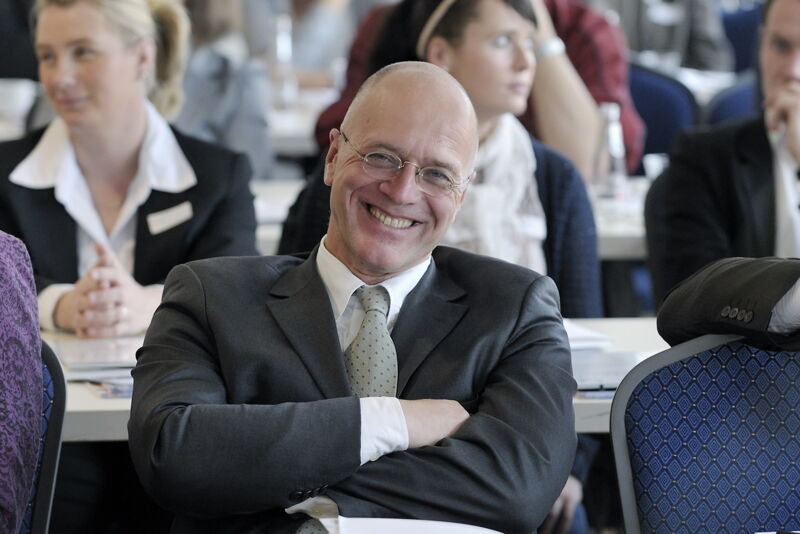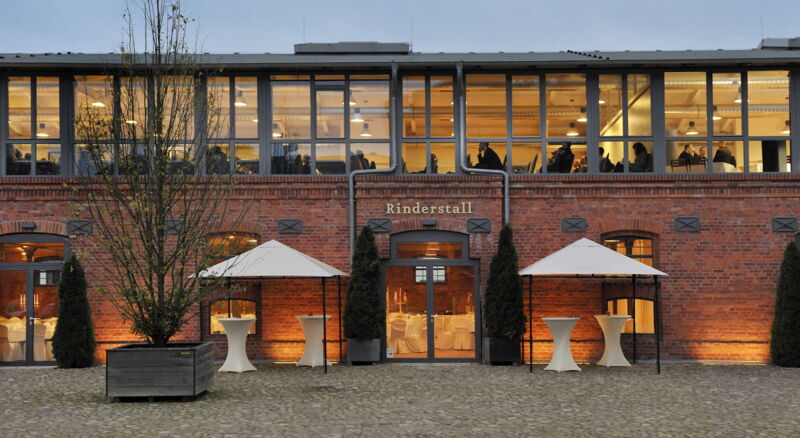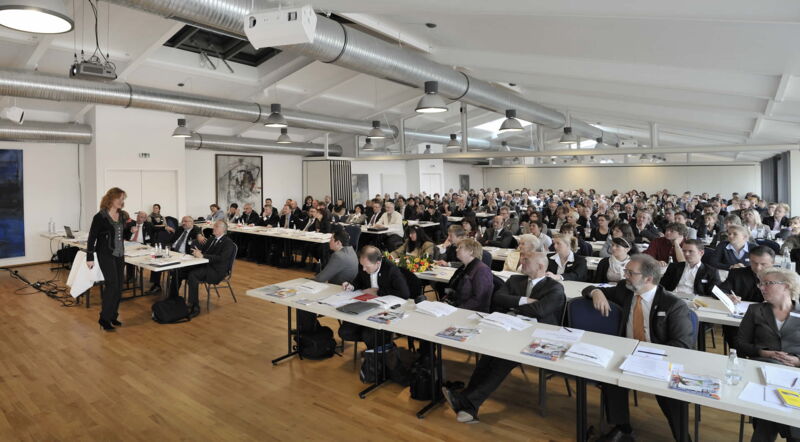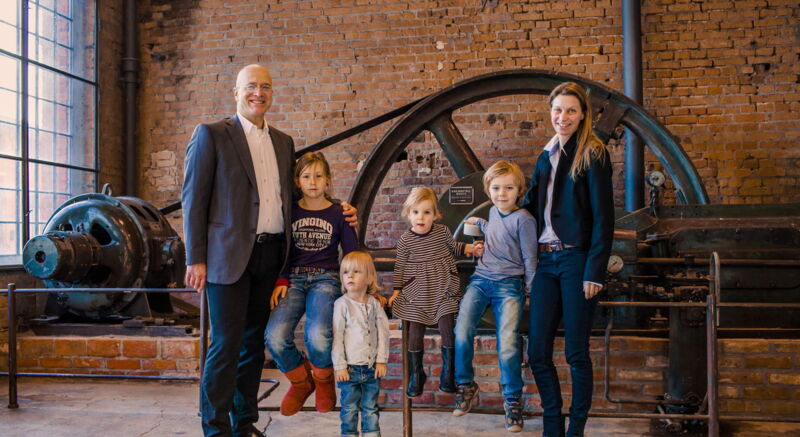Green meetings at a lake, close to nature and Berlin
Sustainability & Corporate Strategy
Our environmental management according to EMAS is characterized by the commitment to continuously improve our environmental performance. With this environmental statement, we offer an insight into our work to date and our future, self-imposed goals.
Our environmental policy
Ecology = long-term economy and social responsibility
We are convinced that the protection and care of our common environment is the prerequisite for our future. Therefore, we act according to ecological principles: environmentally conscious, modern and sustainable.
We treat raw materials with care, use environmentally friendly recycling processes and avoid the use of harmful products. For us, environmental protection in the hotel means using all energies (heating, cooling, electricity) only from solar or renewable energy sources and intelligent technologies, and this at the highest comfort level for our guests. Step by step we are working on continuous improvements and regularly check the achieved environmental protection goals and commit ourselves to fully comply with the legal requirements. Independent institutes and consultants check and accompany us and guarantee high quality. Our concept includes actively involving employees and guests in our environmental protection concept, accepting criticism and suggestions, trying out new things and keeping the tried and tested.
As an exemplary sustainability and environmental hotel, we want to encourage others to follow suit. This applies to hotels, suppliers, guests, partners, neighbors and companies to whom acting for the future is just as important as it is to us. We are committed to making investments only in ethically acceptable projects. We take our social responsibility very seriously. This is reflected, among other things, in the respectful way we treat each other both inside and outside the company.
We have introduced "benefits" for our employees, such as a company pension plan, so 20 percent of profits go to employees in the form of higher wages or retirement benefits, 20 percent are donated to humanitarian and social projects, another 40 percent are reinvested in the company, 10 percent special redemption payments are made to the sustainability bank and 10 percent go to the owners.
Tanja Getto-Stober and Michael Stober, Landgut Stober GmbH & Co. KG, Nauen
here you will find our: SUSTAINABLEKITS & CORPORATE STRATEGY
Landgut Stober - Philosophy and Vision
The magic of the place. In the end, Michael Stober can trace everything back to this moment when he thinks about how the huge project that is being built on the Stober estate came about. Because when he decided to buy this special place, he knew almost nothing about the great history of the Stober estate, about the spirit, about the possibilities. "I stood here and felt it," he says simply. Today everyone who comes to visit feels it. But that's easy now, because Michael Stober has already performed the great miracle.
The estate was in ruins when he took it over, classified as irreparable, basically just a piece of land full of rocks on it - and the rubbish that local residents had dumped in the empty buildings for years - if not decades.
Today there is a small and a large hotel, a restaurant and a wine bar, 30 salons for conferences, weddings and events here, on the picturesque Groß Behnitzer See in Havelland. And a fascinating piece of German history, because the name Borsig stands for revolutionary ideas and developments that shaped the whole country. August Borsig was an industrialist at the beginning of the 19th century, founder of the Borsig works and a pioneer in the time of the first railways. There was a time when practically all newly built railways in the Prussian Empire came from him.
But he was also a pioneer in the field of social responsibility: he had the first in-house social security system - and a company swimming pool to counteract the risks of catastrophic hygiene in Berlin's working-class districts. And with the same pioneering and inventive spirit that underlay the success of his Borsig works, his son also approached the renewal of agriculture after he had bought an estate in Havelland from an impoverished landed gentry: the Stober estate in Groß Behnitz, right on the shore of the lake.
Michael Stober: "You could say I had a vision"
"Down here," says Michael Stober, pointing into the gaping abyss that was once the cellar, "is Germany's first fully automatic potato steamer." It's a collection of rollers and chains to which conveyor shovels are attached, troughs and tubs, rusted, battered and half buried underground. A technical masterpiece of its time, left to decay.
You can guess what the whole estate must have looked like when Stober came here for the first time, in the year 2000 and was actually looking for a house for himself. "A friend told me that this estate was here for the It's for sale," he says, "and I drove there like a fool." The trees grew through the roofs of the houses. But Stober, who has had some experience with refurbishments as a contractor -- "a few thousand units" -- was able to see something no one else thought was possible. "You can say I had a vision," he says today, "and unlike Helmut Schmidt, I don't believe that people with visions should go to the doctor." He began to implement his vision.
It took a while for the concept to stand, because it was clear that the Stober estate was not suitable as a home for a family. "I was looking for an implementation that would attract public attention, a sustainable business activity that served a cultural background." The cultural background that August Borsig and later his descendants provided could not be broader. Technology, agriculture, biology (all Borsigs were dendrologists - non-useful tree researchers) - combined with social and societal commitment up to the Kreisau Circle, the oppositional group of the Nazi era around James von Moltke and Peter Graf Yorck von Wartenburg, who were friends with the resistance fighters of June 20, 1944 to Count von Stauffenberg. The “Kreisauer” developed ideas for the time after the fall of the Third Reich, which they considered inevitable, and they discussed their ideas on agriculture here, with Dr. Ernst von Borsig junior (the Borsigs had meanwhile been ennobled).
He was August Borsig's great-grandson, the third and last in the line of August Borsig's descendants, who had meanwhile taken over the estate. It is an irony of history that Dr. Ernst von Borsig junior, the anti-Nazi resister, died of an infection in a Russian internment camp after the end of the war, before the family had managed to prove his opposition to the Nazis. It was also the beginning of the decline for the estate.
Progress and resilience in one place
Technical progress has always been a cornerstone of Borsig's thinking. Not only with the locomotives that left the Borsig works, or with the engineering services, for example in bridge construction (the motorway bridges, which are still on rollers today and thus compensate for the movement of the material with temperature fluctuations, are based on a Borsig construction) - but also in of agriculture on the estate.
The cowshed was air-conditioned by means of a pipe system using the gases from the liquid manure, the fields were cultivated using steam engines, and the schnapps distillery, for which the potato steamer had also been developed, functioned largely automatically - the potatoes were not only steamed automatically, but the Abrasion is also transported via the conveyor chains to the pigsty for feeding.
That in itself is impressive. But an overall picture only emerges when one reads in the writings of the Kreisau Circle that Ernst von Borsig junior was not just a brilliant engineer. For him, the focus of all agricultural work is the human being: While there is practically not a word about technology in his explanations, he is concerned with the role and task of the farmer in society, in the village community, in the world. Even in German history, rich in great, responsible and committed entrepreneurs, he deserves a special place.
In GDR times, the Stober estate was an LPG (agricultural production cooperative), later individual buildings were still used, for example as a daycare center. But like everywhere else in Havelland, more people move away than are born. What are you supposed to do with such a large plot of land in such an area? Who should fill all this with life again? "It probably caught me at a perfect moment," says Michael Stober. And then, with a slight grin: "The gravity of age drives you to do things that make more sense." He's only 54 years old, so age is relative, but he's already at least a career as a building contractor.
The energy with which he forms the center of this company - always approachable, with an overview of every small detail - gives an idea that it was an intensive entrepreneurial life. This man seems like he can't do things by halves.
In the spirit of the Borsigs
The lounges for conferences and celebrations at Landgut Stober are almost ready. You will soon be the center of everything that happens here. You will be able to print in the lithography workshop or learn how the 26.5-ton steam engine works, which Stober received as a gift from the Borsig works. Hold meetings that capture the truly special spirit of the place. If you had to sum it up in one sentence, you could probably say Michael Stober creates a place where people can understand. In the literal sense: learning by understanding, touching, doing it yourself. Of course, you can also simply spend your holidays on the estate in the beautiful nature and the wonderful, straightforward, casual hotel, which is housed in the former guest house and has been expanded with the former barn as an organic hotel.
You can get married here, or just dine in the restaurant with a lakeside terrace, attend concerts or hold conferences with more than a thousand participants in the large hall in the former cowshed. But in truth, the magic of the place is about how much every single person can do in this world if they use all their skills and actually do it. It's not about the Borsig in us, but about the spirit that drove the Borsigs and that is in each of us.
Today, Michael Stober doesn't even know exactly what his job is. "Investor" is written in the brochure that the estate sends or gives to interested parties when they come to visit. He himself says the correct term is probably "enthusiast". And it sounds a bit like a guiding principle for what visitors can experience here and take with them when Michael Stober says about his own motivation for the project: "If I don't do it, nobody will."
Sustainability & Corporate Strategy
Our environmental management according to EMAS is characterized by the commitment to continuously improve our environmental performance. With this environmental statement, we offer an insight into our work to date and our future, self-imposed goals.
Our environmental policy
Ecology = long-term economy and social responsibility
We are convinced that the protection and care of our common environment is the prerequisite for our future. Therefore, we act according to ecological principles: environmentally conscious, modern and sustainable.
We treat raw materials with care, use environmentally friendly recycling processes and avoid the use of harmful products. For us, environmental protection in the hotel means using all energies (heating, cooling, electricity) only from solar or renewable energy sources and intelligent technologies, and this at the highest comfort level for our guests. Step by step we are working on continuous improvements and regularly check the achieved environmental protection goals and commit ourselves to fully comply with the legal requirements. Independent institutes and consultants check and accompany us and guarantee high quality. Our concept includes actively involving employees and guests in our environmental protection concept, accepting criticism and suggestions, trying out new things and keeping the tried and tested.
As an exemplary sustainability and environmental hotel, we want to encourage others to follow suit. This applies to hotels, suppliers, guests, partners, neighbors and companies to whom acting for the future is just as important as it is to us. We are committed to making investments only in ethically acceptable projects. We take our social responsibility very seriously. This is reflected, among other things, in the respectful way we treat each other both inside and outside the company.
We have introduced "benefits" for our employees, such as a company pension plan, so 20 percent of profits go to employees in the form of higher wages or retirement benefits, 20 percent are donated to humanitarian and social projects, another 40 percent are reinvested in the company, 10 percent special redemption payments are made to the sustainability bank and 10 percent go to the owners.
Tanja Getto-Stober and Michael Stober, Landgut Stober GmbH & Co. KG, Nauen
here you will find our: SUSTAINABLEKITS & CORPORATE STRATEGY
Landgut Stober - Philosophy and Vision
The magic of the place. In the end, Michael Stober can trace everything back to this moment when he thinks about how the huge project that is being built on the Stober estate came about. Because when he decided to buy this special place, he knew almost nothing about the great history of the Stober estate, about the spirit, about the possibilities. "I stood here and felt it," he says simply. Today everyone who comes to visit feels it. But that's easy now, because Michael Stober has already performed the great miracle.
The estate was in ruins when he took it over, classified as irreparable, basically just a piece of land full of rocks on it - and the rubbish that local residents had dumped in the empty buildings for years - if not decades.
Today there is a small and a large hotel, a restaurant and a wine bar, 30 salons for conferences, weddings and events here, on the picturesque Groß Behnitzer See in Havelland. And a fascinating piece of German history, because the name Borsig stands for revolutionary ideas and developments that shaped the whole country. August Borsig was an industrialist at the beginning of the 19th century, founder of the Borsig works and a pioneer in the time of the first railways. There was a time when practically all newly built railways in the Prussian Empire came from him.
But he was also a pioneer in the field of social responsibility: he had the first in-house social security system - and a company swimming pool to counteract the risks of catastrophic hygiene in Berlin's working-class districts. And with the same pioneering and inventive spirit that underlay the success of his Borsig works, his son also approached the renewal of agriculture after he had bought an estate in Havelland from an impoverished landed gentry: the Stober estate in Groß Behnitz, right on the shore of the lake.
Michael Stober: "You could say I had a vision"
"Down here," says Michael Stober, pointing into the gaping abyss that was once the cellar, "is Germany's first fully automatic potato steamer." It's a collection of rollers and chains to which conveyor shovels are attached, troughs and tubs, rusted, battered and half buried underground. A technical masterpiece of its time, left to decay.
You can guess what the whole estate must have looked like when Stober came here for the first time, in the year 2000 and was actually looking for a house for himself. "A friend told me that this estate was here for the It's for sale," he says, "and I drove there like a fool." The trees grew through the roofs of the houses. But Stober, who has had some experience with refurbishments as a contractor -- "a few thousand units" -- was able to see something no one else thought was possible. "You can say I had a vision," he says today, "and unlike Helmut Schmidt, I don't believe that people with visions should go to the doctor." He began to implement his vision.
It took a while for the concept to stand, because it was clear that the Stober estate was not suitable as a home for a family. "I was looking for an implementation that would attract public attention, a sustainable business activity that served a cultural background." The cultural background that August Borsig and later his descendants provided could not be broader. Technology, agriculture, biology (all Borsigs were dendrologists - non-useful tree researchers) - combined with social and societal commitment up to the Kreisau Circle, the oppositional group of the Nazi era around James von Moltke and Peter Graf Yorck von Wartenburg, who were friends with the resistance fighters of June 20, 1944 to Count von Stauffenberg. The “Kreisauer” developed ideas for the time after the fall of the Third Reich, which they considered inevitable, and they discussed their ideas on agriculture here, with Dr. Ernst von Borsig junior (the Borsigs had meanwhile been ennobled).
He was the great-grandson of August Borsig, the third and last in the line of descendants of August Borsig, who had taken over the estate in the meantime. It is an irony of history that Dr. Ernst von Borsig junior, the anti-Nazi resister, died of an infection in a Russian internment camp after the end of the war, before the family had managed to prove his opposition to the Nazis. It was also the beginning of the decline for the estate.
Progress and resilience in one place
Technical progress has always been a cornerstone of Borsig's thinking. Not only with the locomotives that left the Borsig works, or with the engineering services, for example in bridge construction (the motorway bridges, which are still on rollers today and thus compensate for the movement of the material with temperature fluctuations, are based on a Borsig construction) - but also in of agriculture on the estate.
The cowshed was air-conditioned by means of a pipe system using the gases from the liquid manure, the fields were cultivated using steam engines, and the schnapps distillery, for which the potato steamer had also been developed, functioned largely automatically - the potatoes were not only steamed automatically, but the Abrasion is also transported via the conveyor chains to the pigsty for feeding.
That alone is impressive. But an overall picture only emerges when one reads in the writings of the Kreisau Circle that Ernst von Borsig junior was not just a brilliant engineer. For him, the focus of all agricultural work is the human being: While there is practically not a word about technology in his explanations, he is concerned with the role and task of the farmer in society, in the village community, in the world. Even in German history, rich in great, responsible and committed entrepreneurs, he deserves a special place.
In GDR times, the Stober estate was an LPG (agricultural production cooperative), later individual buildings were still used, for example as a daycare center. But like everywhere else in Havelland, more people move away than are born. What are you supposed to do with such a large plot of land in such an area? Who should fill all this with life again? "It probably caught me at a perfect moment," says Michael Stober. And then, with a slight grin: "The gravity of age drives you to do things that make more sense." He's only 54 years old, so age is relative, but he's already at least a professional life as a building contractor.
The energy with which he forms the center of this company - always approachable, with an overview of every small detail - gives an idea that it was an intensive entrepreneurial life. This man seems like he can't do things by halves.
In the spirit of the Borsigs
The lounges for conferences and celebrations at Landgut Stober are almost ready. You will soon be the center of everything that happens here. You will be able to print in the lithography workshop or learn how the 26.5-ton steam engine works, which Stober received as a gift from the Borsig works. Hold meetings that capture the truly special spirit of the place. If you had to sum it up in one sentence, you could probably say Michael Stober creates a place where people can understand. In the literal sense: learning by understanding, touching, doing it yourself. Of course, you can also simply spend your holidays on the estate in the beautiful nature and the wonderful, straightforward, casual hotel, which is housed in the former guest house and has been expanded with the former barn as an organic hotel.
You can get married here, or just dine in the restaurant with a lakeside terrace, attend concerts or hold conferences with more than a thousand participants in the large hall in the former cowshed. But in truth, the magic of the place is about how much every single person can do in this world if they use all their skills and actually do it. It's not about the Borsig in us, but about the spirit that drove the Borsigs and that is in each of us.
Today, Michael Stober doesn't even know exactly what his job is. "Investor" is written in the brochure that the estate sends or gives to interested parties when they come to visit. He himself says the correct term is probably "enthusiast". And it sounds a bit like a guiding principle for what visitors can experience here and take with them when Michael Stober says about his own motivation for the project: "If I don't do it, nobody will."


